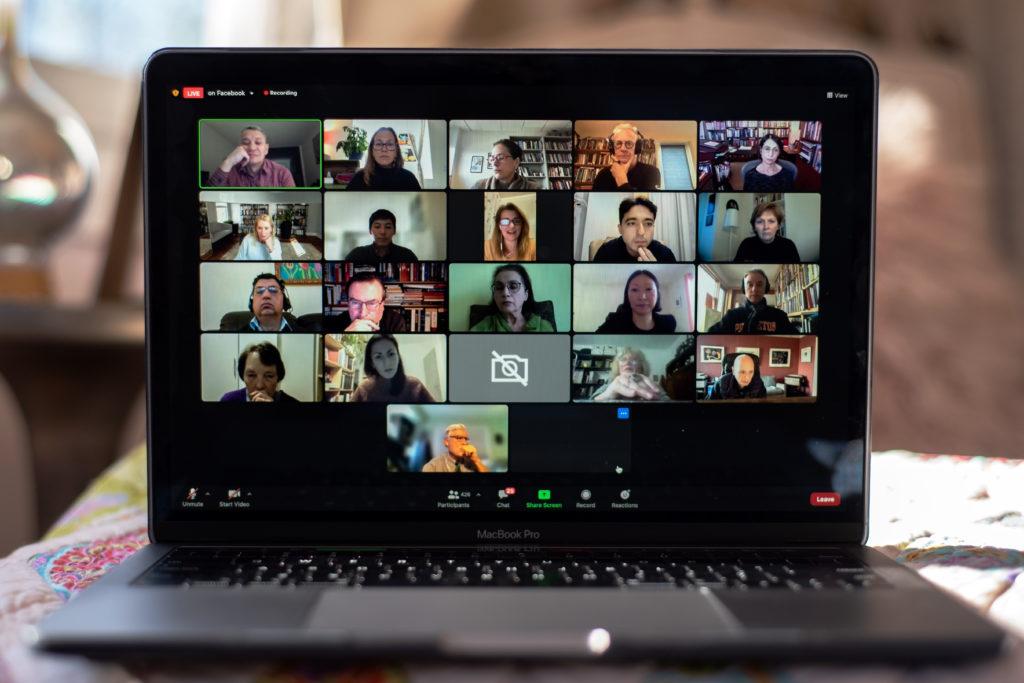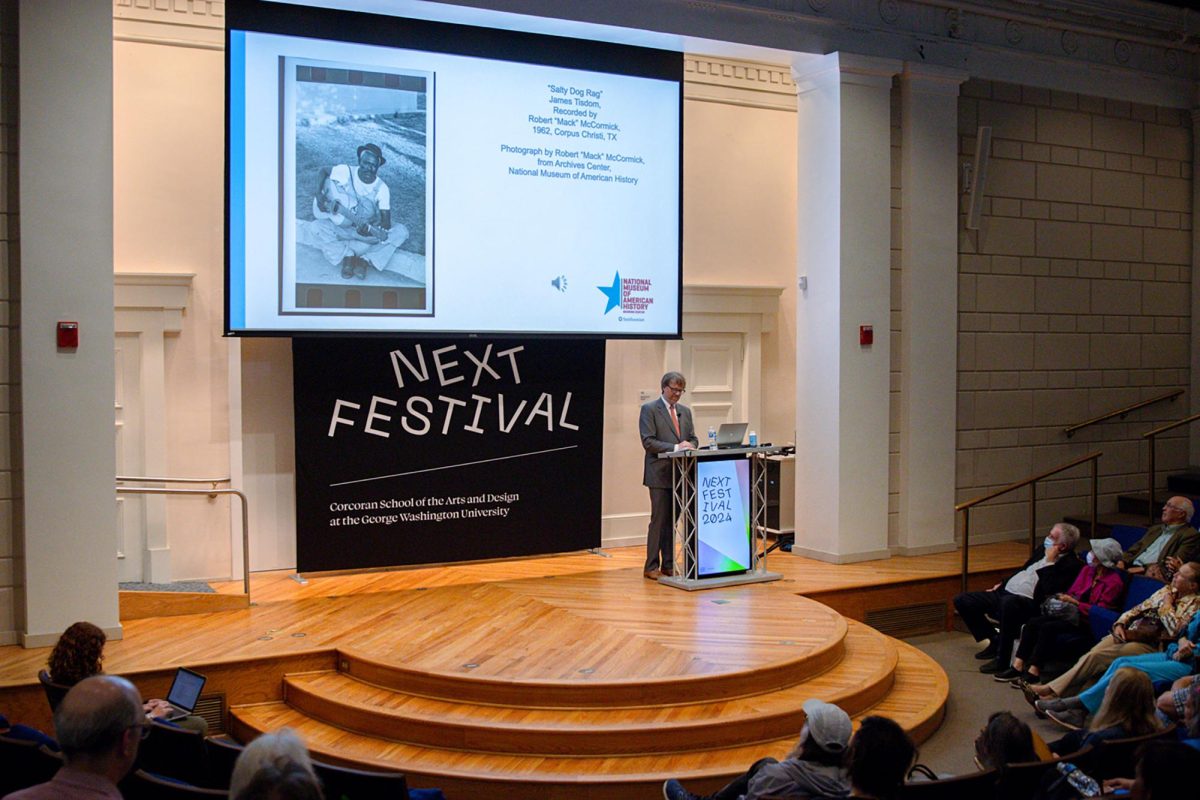A panel of experts discussed protests and governmental collapse in Kazakhstan Monday, where Russian military troops recently intervened to stifle ongoing demonstrations.
More than 1,000 viewers tuned into a live stream of the virtual talk, which featured two professors, two researchers and a journalist who said recent instability in Kazakhstan and clashes between protesters and Russian soldiers have interfered with reporting on the unrest. Marlene Laruelle, the director of the Institute for European, Russian and Eurasian Studies, moderated the event, which was hosted by the institute and the Central Asia Program, both housed in the Elliott School of International Affairs.
Merhat Sharipzhanov – a central newsroom correspondent for Radio Free Europe, a U.S. government-funded news broadcast based in the Czech Republic – said citizens who are calling for the removal of the country’s top leadership because of concerns about public corruption, slow economic development and a lack of democratic reforms have fueled the recent protests in Kazakhstan. He said the Russian military intervention that sent about 2,500 troops into Kazakhstan late last week to disband protestors, who Kazakh President Kassym-Jomart Tokayev labeled “terrorists,” is an attempt to assert influence in Central Asia.
Sharipzhanov said the protests, which started earlier this month in response to rising fuel prices, spread nationwide as more Kazakhs demanded the resignation of the country’s top leadership, the return of a directly elected government and economic concessions.
“For anyone who is a grown up person, it is incredible to believe, and as a person who served in the Soviet Army for myself, 20,000 troops is impossible to believe,” Sharipzhanov said during the panel discussion.
Sharipzhanov said reporters covering the protests struggled to determine where Russian troops were stationed in Kazakhstan because Kazakh government officials provided little information about the protests and military response. He said government press officials have not indicated whether Kazakh President Tokayev has remained in the country or explained the level of security in the capital city of Nur-Sultan.
“We lack complete information because, among all these reports, the statements like 20,000 troops or terrorists coming to Almaty don’t give us any ground to believe anything the government says,” he said.
Barbara Junisbai, an associate professor of organizational studies at Pitzer College, said ethnic Kazakhs have been economically and politically disadvantaged in Kazakhstan because of government neglect and a lack of economic opportunity, which Russian influence in the Kazakh government has worsened in past decades.
“Kazakhstan used to be a place where the middle class expected to grow and expand and people expected that their life would get better,” Junisbai said.
She said even though the Kazakh government has labeled protestors as “terrorists,” most of the demonstrators’ actions have been peaceful in hopes of ending poor economic conditions and military reprisals. She said many Kazakhs feel they have been forced into action because of declining standards of living and middle-class conditions around the country.
“I think that there is a real protest element, and I am sympathetic to it,” she said. “I feel that it is correct and my sympathy goes to the protesters.”
Temur Umarov – a research consultant at Carnegie Moscow Center, a think tank based in Moscow that focuses on domestic and foreign policy – said Kazakhstan has always been a “middle ground” region where major world powers could join together and cooperate on international policy for the nation. He said the recent protests and Russian government intervention could undermine the country’s reputation with the United States and European countries because of its new reliance on Russian aid and its rejection of Kazakh calls for constitutional changes.
He said the current situation in Kazakhstan is similar to demonstrations in Belarus in 2020 and 2021, where thousands of Belarusians protested reports of election fraud and mishandling of the COVID-19 pandemic, which led to the imprisonment or exile of most major opposition leaders in the country.
“For Kazakhstan’s future, I think it means that we will in the near future see some very similar political moves that we saw in Russia and after protests that we saw in Belarus after 2020,” he said.
Umarov said China will not likely soon take any direct action against Russia or Kazakhstan, even though a large ethnic Chinese population lives in Kazakhstan and the rest of Central Asia. He said the Chinese government prioritizes political stability within Central Asian countries over economic development and democratic reform.
“Right now, China doesn’t care whether stability will be reached in Kazakhstan with Kazakh’s own internal forces or Russia, which is a very good Chinese partner and will come and make the situation stable,” Umarov said.
Nargis Kassenova, a senior fellow and the director of the Program on Central Asia at the Davis Center for Russian and Eurasian Studies at Harvard University, said the protests in Kazakhstan will likely spark political reforms, like anti-corruption policies. She said President Tokayev has been discussing potential reforms for years, but he has been unclear about which policies he might unveil after the protests’ conclusion.
“I think there is an understanding at all levels that the country is in a very bad shape,” Kassenova said. “Now the situation is explosive.”
Pauline Jones, a professor of political science and the director of the digital Islamic Studies Curriculum at the University of Michigan, said Kazakhstan’s economy has been in decline for more than five years and has contributed to recent unrest. She said Kazakhstan has suffered from years of declining oil prices, public sector corruption and constraints on growth in the private sector.
“I think this is a crucial question that both of my colleagues raised in their remarks was whether Tokayev will continue to choose repression over reform,” Jones said. “Will he engage in the political and economic reform that is needed and that he promised?”
Jones said the crackdown on the protests by the Kazakh government will lead to fewer democratic elections and less popular representation in public life in the country. She said Kazakhstan will also be more reliant on support from countries like China and Russia in the coming years because of the Russian military involvement and its gradual move away from the West.
“This is not just a move or a turn toward more repressive authoritarianism and away from soft authoritarianism, but I think it’s also clearly a turn towards authoritarian solidarity with Russia and China,” Jones said.







